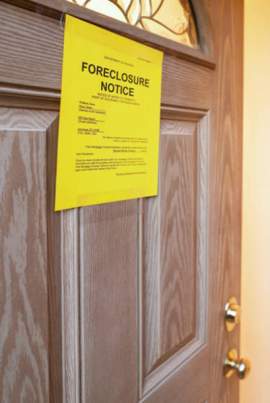
The Legal Remedies for Lender

In any type of loan, the lender has to worry about their own protection in case the borrower does not pay them back. This can be due to the fact that they lack the funds to do so, become bankrupt, or simply choose not to. That is why there are certain laws and documents that help to protect a lender from the borrower by enforcing penalties, and using security as a preventive measure to loss of funds. These protective measures mainly deal with holding some kind of collateral over the debt owed, that would entitle the lender to use against the borrower in case they weren't able to pay them back.
In other cases, the measures can deal with penalties before this happens. For instance, when a bank is owed money on a mortgage over a property that goes unpaid, they have certain penalties. These penalties are known to the borrower prior to them acquiring the mortgage, and become enforced right after the debt goes unpaid. First, the late fees are imposed, and later, the account can be placed in default.
After it has been placed in default, the bank may have additional fees necessary in order to reinstate it into a current good standing. If the mortgage is in default for a certain period of time, the bank can take over control of that property as compensation for the debt. The property would be later sold, and the funds would go to the mortgage lender (the bank) as a form of payment for the debt. In other cases of loan, the lender can hold the title of a property directly, or indirectly through a trustee as as security interest over the loan.
Specifically, the lender does not have the right to have use over the property under the title or preventing the owner from its use, simply just as a countermeasure against failure of payment. Similarly to mortgage defaults, in the event that the debt goes unpaid the lender has the opportunity to sell the title of the property to acquire their funds owed by the borrower. If the trustee is involved, than they sell the property and provide the funds to to the lender.
One way that a lender is protected from any existing, or future debt, is a clause known as the dragnet clause. This clause allows the lender the right to add any additional loans to the amount of an existing loan, within a mortgage loan. This means that the property securing the loan would secure any additional loans as well, regardless of their purpose. This protects the lender in the event that the borrower fails to make payments on any mortgage or loan, the property can be held against that debt as mentioned before, and sold if necessary to recuperate the money for the lender.
When dealing with debt both parties are protected, but the importance of the lender's protection is evident due to the high amount of money in a loan they may provide. These types of loan require not only a security interest, but an added sense of security to the lender themselves. Regulations, guidelines, and laws assist in proving that sense of security both on paper and as a given factor to the lender.
NEXT: Satisfaction of Loans and Liens




















